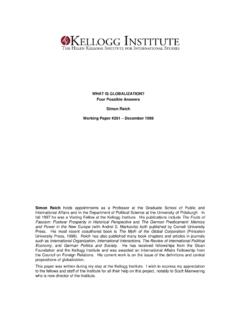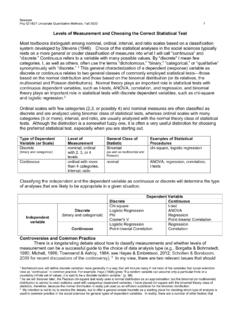Transcription of GCSE SOCIOLOGY UNIT 1 REVISION BOOKLET - Short Cuts
1 1 GCSE SOCIOLOGY UNIT 1 REVISION BOOKLET Studying Society The Family Education CONTENTS STUDYING KEY SAMPLING RESEARCH PRIMARY SECONDARY THE KEY sociological APPROACHES TO THE DIFFERENT FAMILY CHANGES IN THE CHILDREN AND KEY CHANGES IN THE EDUCATION sociological APPROACHES TO SOCIAL CLASS AND GENDER AND ETHNICITY AND PARENTAL HOW SCHOOLS ARE EXAM 2 STUDYING SOCIETY Studying Society tests your knowledge of SOCIOLOGY in 2 main ways: 1. The terms and concepts sociologists use; 2.
2 The research that sociologists do. KEY TERMS Below are the sociological terms you need to know you could be asked for the definitions of any of these on the exam. Term Definition sociological approach A way of understanding human society that focuses on social structures Psychological approach A way of understanding human behaviour by looking at individual make-up (brain, thinking patterns, personality etc.) Biological approach A way of understanding humans by looking at their biological make-up (genes, chromosomes, hormones etc.)
3 Power Where a person or group is able to direct the behaviour of another person or group. This can be through direct exercise of power (force, dominance, authority) or indirectly (coercion, persuasion, expertise). Social Control Ways of ensuring people behave in socially acceptable ways, such as socialisation, laws, exercise of power etc. Social Structure Structures organised around people, such as the family, schools, government, religion etc. Culture Where a group of people share common norms, values and beliefs.
4 Subculture A smaller group of people who share norms, values and beliefs that are different from the main culture. Socialisation The process of learning norms, values and beliefs. This can be primary or secondary. Institution of socialisation The different social structures that are involved in socialising members of society, such as the family, education system, mass media, religion etc. Race A term that suggests differences in culture, nationality, skin colour etc. are biological. Ethnicity A term that refers to differences in culture but is not based on biology this is about social differences.
5 Sex A term referring the biological categories of male and female, as defined by genes, chromosomes and hormones. Gender A term referring to the social categories of masculine and feminine, which are usually related to the biological categories of male and female due to stereotyping and gender role socialisation. Age The process of aging is biological, but there are sociological points to make about this (for example, children are treated differently to adults, the mass media tend to present negative stereotypes of older people etc.)
6 Stereotype A typical image of a person based on social categories such as gender, age, ethnicity, family position, job etc. Deviance Acting in a way that goes against a culture s norms, values and beliefs. Norms Ways to act and behave that are seen as normal within a culture / subculture. Values The things that a culture / subculture believes are important (eg. earning a living, owning a house). Beliefs The things that a culture / subculture believes in (God, the innocence of children etc.). 3 SAMPLING METHODS A sample is a selection of the population who are chosen to take part in research.
7 Sociologists use samples because it is not practical to ask all of the population. It is important that the sample is as representative of the population as possible. A sampling method is how the sample is selected. Sampling Method Strengths Weaknesses Stratified Sampling This involves picking people from different groups within the population (eg. different genders, ethnicities, ages, social classes). The sample will be representative and give the point of view of all the different groups in the population.
8 It is more time-consuming to select the sample than other sampling methods. Random Sampling The sample is selected by picking names out of a hat (or with a computer) like the National Lottery balls. There is no researcher bias in who is selected and everyone stands an equal chance of being selected. It is also quick and easy to use. The sample might be all the same sort of people (eg. too many males), so it will not be representative of the whole population. Quota Sampling The researcher picks participants until they have the number they need (ie their quota ).
9 It is a quick and easy way to select the right sort of people for the research. The sample is likely to be biased because the researcher is choosing the participants. Systematic Sampling The researcher uses a system to pick the participants (eg. every 10th name on the register). The participants will be a cross-section of the population, so will hopefully be representative. Only the people on the register stand a chance of being selected. Snowball Sampling The researcher selects one person, then asks them to put them in touch with other people, etc.
10 Useful for researching hard to contact groups (eg. gangs). Very time-consuming, so only small samples are used and the results are not generalisable. ETHICS Ethics are morals. Researchers follow ethical guidelines, which are rules about how they treat their participants. These are set out by the british sociological association . Ethical issues can arise in research and sociologists must do everything they can to address these. The main ethical issues: Get informed consent (or parents consent for under 16s).











